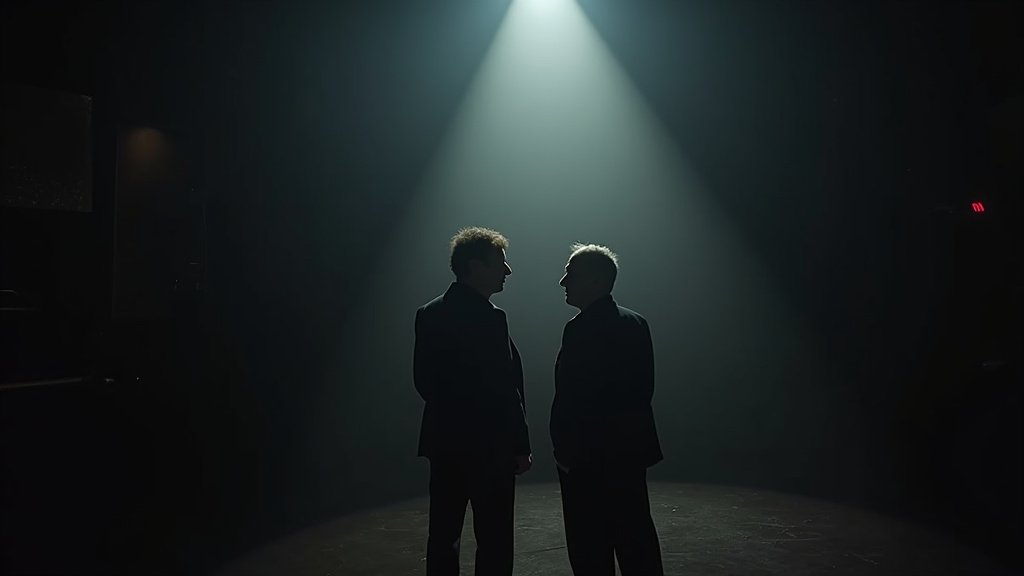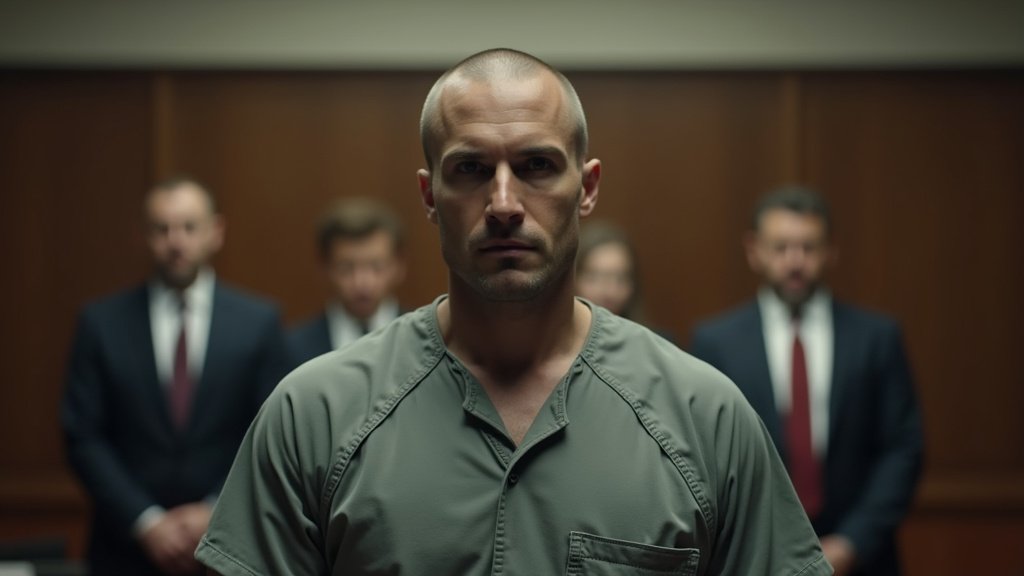Hollywood is never short on hype. From the moment a major star signs on to a project to the cryptic teases dropped by studios, the entertainment world thrives on buzz, anticipation, and, of course, a little bit of scandal. But what’s really going on behind all those carefully crafted press releases and fan-fueled rumors? Here, we’re peeling back the glittery curtain to look at the biggest Hollywood hype news of the year and what’s causing all the noise.
1. The Blockbuster Race: How Studios Keep Audiences Hooked
If you’ve been paying attention to Hollywood for the past decade, you’ve probably noticed a pattern: the movie industry is more competitive than ever. Blockbusters dominate the box office, but they also dominate headlines long before they even hit the screen. Welcome to the new age of Hollywood, where hyping a film is as much an art form as making the film itself.
From the moment a major studio announces a tentpole project, the wheels of hype begin turning. Take, for example, the intense competition among the biggest franchises—Marvel, DC, and even Star Wars—each vying to create not just movies but massive, interconnected cinematic universes. These universes thrive on pre-release anticipation, carefully orchestrated trailers, and teaser clips that barely scratch the surface, keeping fans hungry for more.
The studio’s marketing departments know exactly what they’re doing. Releasing a poster six months before a film hits theaters? That’s no coincidence—it’s designed to start a conversation, spark debate on social media, and ultimately keep the movie in the news cycle until its release. The longer a film stays in the public’s consciousness, the bigger its opening weekend tends to be. And in an era where success is often measured by those first three days, hype is a make-or-break factor.
But this strategy is a double-edged sword. Overhyped films run the risk of disappointing audiences if they fail to deliver. Remember the fiasco surrounding Batman v Superman? It’s a classic example of a movie that couldn’t live up to the enormous expectations it set. So while studios race to out-hype each other, they must also walk a fine line between raising anticipation and keeping a realistic lid on audience expectations.
2. The Secret Weapon: Casting News and Rumors
There’s nothing Hollywood loves more than a good casting rumor. Whether it’s a hot young actor being eyed for the next superhero flick or a beloved star making their long-awaited return to a famous franchise, casting rumors are a goldmine for generating buzz.
Take, for instance, the recent frenzy over the rumored return of a certain A-list actor to a franchise that fans thought was long dead. Leaked set photos, vague Instagram posts, and “insider” reports on celebrity news websites sent fans into a speculative frenzy. Even when official announcements followed, the rumor mill didn’t stop churning. In fact, the uncertainty often works in the studio’s favor, allowing them to control the narrative and generate organic hype without having to spend a dime on marketing.
Casting hype has a profound effect on social media, where fan theories quickly go viral. Fans rally around the idea of their favorite actors taking on iconic roles, and the conversation spreads like wildfire. The recent debate over casting for Fantastic Four is a perfect example. Despite no official confirmation from Marvel, every day brings new “leaked” names, sparking endless discussions and fan art. Studios, aware of this phenomenon, sometimes intentionally leak information to gauge audience reaction before finalizing casting choices. It’s a win-win scenario: fans feel involved, and studios benefit from free publicity.
However, casting hype is not without its pitfalls. Sometimes, fan expectations clash with the reality of the final product, resulting in backlash. A perfect case in point: the Sonic the Hedgehog controversy, where early designs of the titular character met with such fierce fan criticism that the studio delayed the film to rework the CGI. While the backlash was initially a PR nightmare, the eventual redesign became a win for both the filmmakers and the fans. This incident demonstrated that even in an age of hype, listening to audience feedback can turn a negative situation into positive press.
3. Hollywood’s Love Affair with Secrecy: The NDA Culture
One of the most significant factors driving Hollywood hype is secrecy. Studios have become adept at controlling information, making even the smallest details feel like major revelations. It’s all part of the NDA (non-disclosure agreement) culture that now dominates the industry.
Actors, directors, and even crew members sign ironclad NDAs to ensure that plot details, character arcs, and twists remain under wraps. This air of mystery only heightens anticipation, as fans and media alike scramble to uncover any clue they can. The secrecy surrounding projects like Avengers: Endgame and Star Wars: The Rise of Skywalker was so intense that even cast members claimed they didn’t know the full story until the film’s premiere.
This trend has given rise to a cottage industry of “leak hunters”—fans and media personalities who scour the internet for any tidbit of information. These leaks, while frustrating for studios, often contribute to the overall hype by keeping the film in the public consciousness for months (or even years) before release. Sometimes, though, these leaks can do more harm than good, especially when they reveal major plot points that studios worked hard to keep hidden.
The challenge for Hollywood, then, is finding the right balance between keeping a lid on secrets and giving audiences enough to be excited about. In many cases, studios will intentionally mislead audiences by planting false information or releasing ambiguous teasers designed to throw fans off the scent. In the age of spoilers, controlling the narrative is more important than ever.
4. Revival of Nostalgia: The Comeback Craze
In recent years, Hollywood has found a new well of hype to tap into: nostalgia. From reboots and remakes to legacy sequels, the entertainment industry has discovered that there’s big money in bringing back beloved franchises from the past.
Shows like Stranger Things have capitalized on 80s nostalgia, while films like Top Gun: Maverick and the return of Indiana Jones have reignited love for classic movie heroes. The key to this strategy lies in playing to fans’ memories while introducing new twists that keep the story fresh. Studios understand that by reviving old favorites, they can bank on built-in audiences while still appealing to a new generation.
But nostalgia alone isn’t enough to guarantee success. Hollywood has had its fair share of failed revivals (Ghostbusters and Charlie’s Angels, to name a few), showing that a strong emotional connection to the past doesn’t always translate to box office success. Fans want more than just a retread of what they’ve seen before—they want the magic of the original, with something new to get excited about. This balancing act requires careful marketing, where trailers and sneak peeks need to tug at the heartstrings while also hinting at fresh, exciting narratives.
5. Celebrity Power: How Stars Fuel Hype
In the era of social media, celebrities have more power than ever to influence hype. A well-timed tweet or Instagram post from an A-lister can send fan excitement skyrocketing overnight. Studios often rely on the star power of their actors to drive publicity, especially in the absence of traditional marketing strategies.
Celebrities today don’t just promote their projects—they tease them. Ryan Reynolds is a master of this, dropping hints about upcoming Deadpool projects on his social media accounts, knowing full well that his fans will dissect every post for clues. Similarly, Tom Holland’s notorious tendency to “accidentally” spoil plot details about Spider-Man films has turned him into a fan favorite, with audiences eagerly awaiting his next “leak.”
This direct connection between celebrities and fans is a crucial tool in the modern Hollywood hype machine. It bypasses traditional media outlets, allowing stars to control their own narrative and communicate directly with their audience. However, this strategy is not without its risks. Social media can be a double-edged sword, with stars facing backlash over controversial statements or actions. In some cases, a celebrity’s off-screen persona can overshadow the project they’re promoting, creating unwanted distractions.
6. The Rise of Streaming Wars: Content Overload
No conversation about Hollywood hype is complete without addressing the elephant in the room: streaming. The rise of platforms like Netflix, Disney+, and Max has fundamentally changed the way Hollywood approaches hype. Where once the box office was the be-all and end-all of a film’s success, streaming services have opened up new avenues for generating buzz.
Today, a show or movie doesn’t need to dominate the box office to make waves. Instead, it can become a cultural phenomenon overnight through word of mouth on social media, binge-watching sessions, and viral memes. The speed at which content is consumed on streaming platforms has created a new type of hype, one where shows can go from unknown to must-watch in a matter of days.
The streaming wars have also led to an unprecedented level of content overload. With so many new shows and movies being released every week, standing out from the crowd has become a monumental challenge. Studios and streaming platforms are now fighting for attention, using every tool at their disposal—whether it’s celebrity endorsements, social media trends, or immersive viral marketing campaigns—to get their content noticed.
7. The Future of Hype: What’s Next for Hollywood?
As the landscape of entertainment continues to evolve, so too will the strategies used to generate hype. With the rise of AI, virtual reality, and interactive media, the future of Hollywood hype promises to be more immersive than ever. Imagine a world where you don’t just watch a movie trailer—you experience it, stepping into a virtual world where you can interact with characters and explore plot details before the film even comes out.
The possibilities are endless, but one thing is certain: as long as Hollywood exists, so too will its hype machine. The industry thrives on anticipation, speculation, and the thrill of the unknown. Whether it’s the next big casting rumor, a jaw-dropping trailer, or a surprise twist no one saw coming, Hollywood will continue to find new ways to keep us all on the edge of our seats.
Hollywood isn’t just a place where movies are made—it’s a world of its own, fueled by dreams, drama, and, most of all, hype. And as long as there’s a new story to tell, the hype will never stop.





